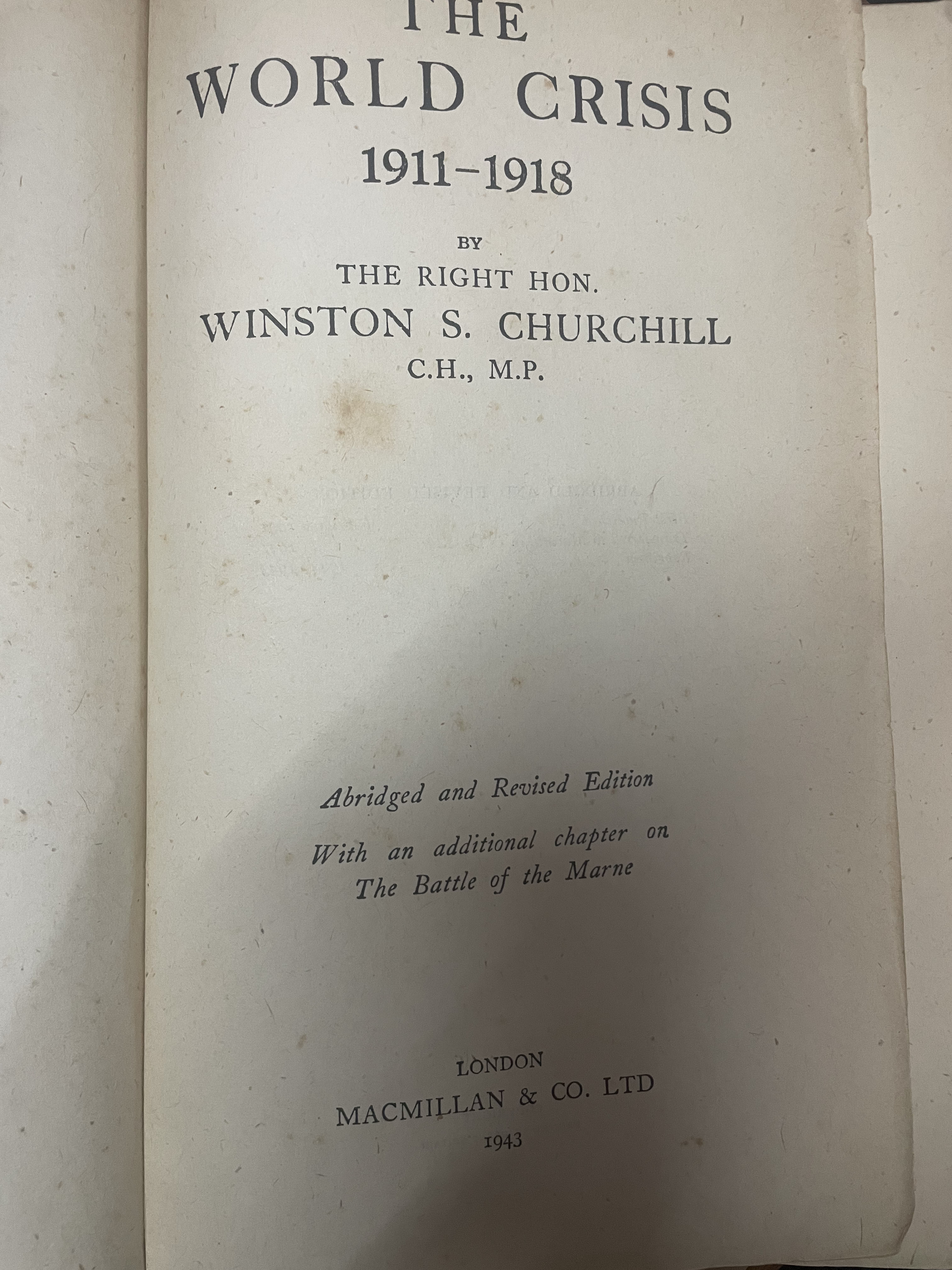The World Crisis 1911-1918

About
Summary
Exquisite
TOC
Details
Related
URL
Images
Overview
The World Crisis is Winston Churchill's six-volume account of World War I, published between 1923 and 1931. Serving as First Lord of the Admiralty and Minister for War and Air, Churchill was at the center of international affairs during this tumultuous period. The World Crisis is both an analysis of the war and a justification of Churchill's role in it.The World Crisis spans the years 1911 to 1918, detailing the origins, major campaigns, and repercussions of World War I. Churchill vividly recounts major events like the attacks of the Marne, naval maneuvers off Jutland, the battle of Verdun, and the victory at Chemins des Dames. He recreates the emergence of modern warfare, including airplanes, trench combat, artillery, and chemical warfare. The work also delves into the inner workings of the British government and military command at the highest levels, including discussions of strategy, logistics, and the influence of party politics.
Importance of Book
Historical Account: It provides a detailed account of World War I from a key participant's perspective.
Political Insight: The book showcases the inner workings of the British government and its military command during the war.
Personal Justification: It serves as a justification for Churchill's role in the war, particularly his involvement in the Dardanelles operation.
Literary Masterpiece: Many consider The World Crisis to be Churchill's masterpiece, praising its writing style and comprehensive analysis.
Key Themes
The Nature of Modern Warfare: The book illustrates the dawn of modern warfare and its impact on the conflict.
Political Intrigue: Churchill portrays the influence of party politics on military strategy and decision-making.
Leadership: The book offers insights into the leadership styles of key political and military figures, including Churchill himself.
The Human Cost of War: Churchill expresses horror and revulsion at the slaughter on battlefields like the Somme and Passchendaele.
Strategic Analysis: Churchill provides detailed analyses of military strategies, logistical planning, and alternative courses of action.
The War to End All Wars: Churchill reflects on how World War I, despite its intentions, gave rise to future conflicts.
Cultural Significance
Historical Perspective: The book provides a valuable historical perspective on World War I from a prominent figure who was actively involved in the conflict.
Literary Achievement: The World Crisis is considered a masterpiece of historical writing, showcasing Churchill's literary skills and unique voice.
Influence on Historical Understanding: The book has shaped the understanding of World War I for generations of readers.
Effects on Society
Shaping Historical Narrative: Churchill's account has played a significant role in shaping the historical narrative of World War I.
Influencing Political Thought: The book has influenced political thought and military strategy, providing insights into leadership, decision-making, and the consequences of war.
Promoting Reflection on War: By highlighting the human cost of war and the complexities of political decision-making, the book encourages reflection on the nature of conflict and its impact on society.
Conclusion
The World Crisis by Winston Churchill is a significant historical and literary work that offers a detailed account of World War I from the perspective of a key participant. As First Lord of the Admiralty and Minister for War and Air, Churchill was deeply involved in the strategic planning and execution of the war effort. While the book serves as a justification for his actions and has been subject to criticism, it remains a valuable resource for understanding the complexities of World War I and the political and military dynamics of the time. Its cultural significance lies in its shaping of the historical narrative of the war and its influence on political and military thought.The World Crisis by Winston Churchill is a significant historical and literary work that offers a detailed account of World War I from the perspective of a key participant. As First Lord of the Admiralty and Minister for War and Air, Churchill was deeply involved in the strategic planning and execution of the war effort. While the book serves as a justification for his actions and has been subject to criticism, it remains a valuable resource for understanding the complexities of World War I and the political and military dynamics of the time. Its cultural significance lies in its shaping of the historical narrative of the war and its influence on political and military thought.
Title
The World Crisis 1911-1918
Author
Winston Churchill
Name of Publisher
Macmillan & Co London
Publish Date
1943
Subject
Account of the events leading up to and including World War I
Vintage
1901-1947
Number of Pages
808
Category
Literary
Sub Category
Biography
Rarity
RARE
